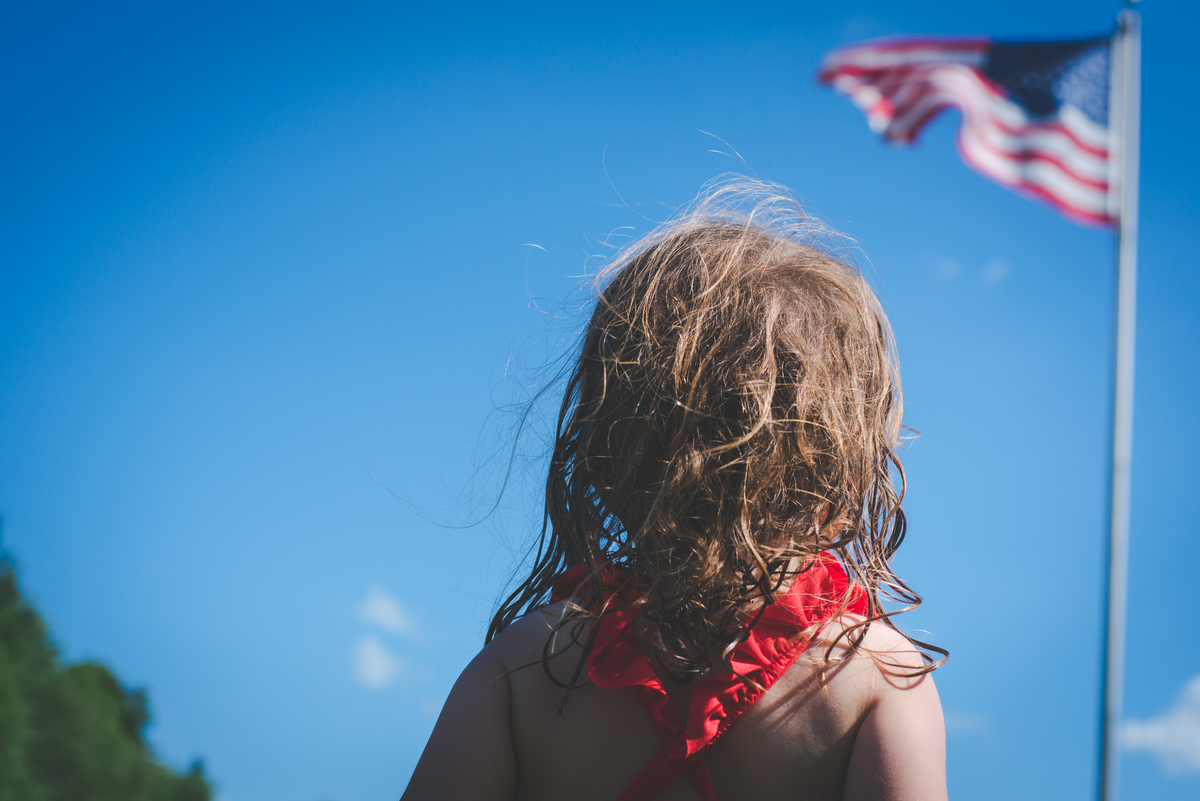Tonight at dinner, we were talking about some people we know with loved ones who contracted the coronavirus, about the difficulty they had caring for someone while distancing from them, about the suddenness of the alteration to their home.
My 10-year-old looked up abruptly and asked, ‘What happens if I get sick with the virus? Would you have to stay away?”
“Well,” I told her, “we’d just have to be in separate areas of the house as much as we could, to make sure we didn’t get sick too.”
She looked visibly shaken and replied, “Then… how could you take care of me?”
I could see the wheels turning and the anxiety building.
I assured her we’d never leave her alone, but honestly the idea of her being sick was terrifying and I tried to change the subject, for me as much as for her. Letting my mind go down the dark roads of that kind of nightmare scenario wasn’t something I was prepared to do while eating—though by that time I’d lost my appetite anyway.
All night long I couldn’t shake the image in my mind of one of my kids being sick and scared and suffering, and not being able to give them the one thing parents can provide when the world caves in for our children: physical contact that makes them feel safe.
It reminded me that hundreds of thousands of families have faced these unthinkable challenges over the past three months; that many had to lose loved ones they couldn’t embrace or climb into bed with, or had taken from them so quickly they weren’t able to kiss them on the head or wipe the hair from out of their eyes or hold their hands one last time. Hundreds of thousands of Americans are grieving right now.
This makes me even more furious that so many people not faced with such unthinkable trauma are still ignoring restrictions, refusing masks, dismissing the numbers, complaining about their imagined oppression, harassing grocery store workers—and defiantly enabling a sociopathic leader who couldn’t care less about human life.
It brought a fresh wave of sadness to realize that even now, when so many are mourning losses from a distance and postponing funerals and grieving in isolation—a good portion of our nation hasn’t given it a second thought: they’re more concerned about being on the lake for Memorial Day and getting their nails done and playing flag football at the park.
That’s the real story of this disaster: the illness that will linger, the one whose cure will not be forthcoming, the one we’ll never have a vaccine for: the toxic combination of abject selfishness and contempt for science and tribal politics and white supremacy that has left people impervious to the suffering of others and unwilling to alter their lifestyles on behalf of saving a stranger.
Long after the cases slow to a trickle, we’ll still be flooded with fake news conspiracies, racial disparities in healthcare, politically-exacerbated relational fractures, and a hostility to outsiders that inexplicably allowed a pandemic to be made partisan by a sociopathic president.
When all this is over, we’re going to have to deal with the heart sickness that we can’t simply distance ourselves from.
We’re going to have to try and heal ourselves, while being in close proximity to the disease.
We’ll have the challenge of trying to embrace something that can harm us.
We’ll have to try and stay healthy and alive while living with the danger.
As bad as this virus is and as invasive as it has proven to be, what it’s exposed about us is far worse.
It’s going to be a long haul to get well.




